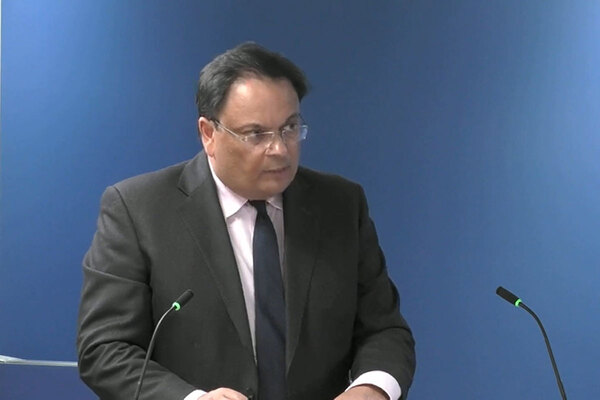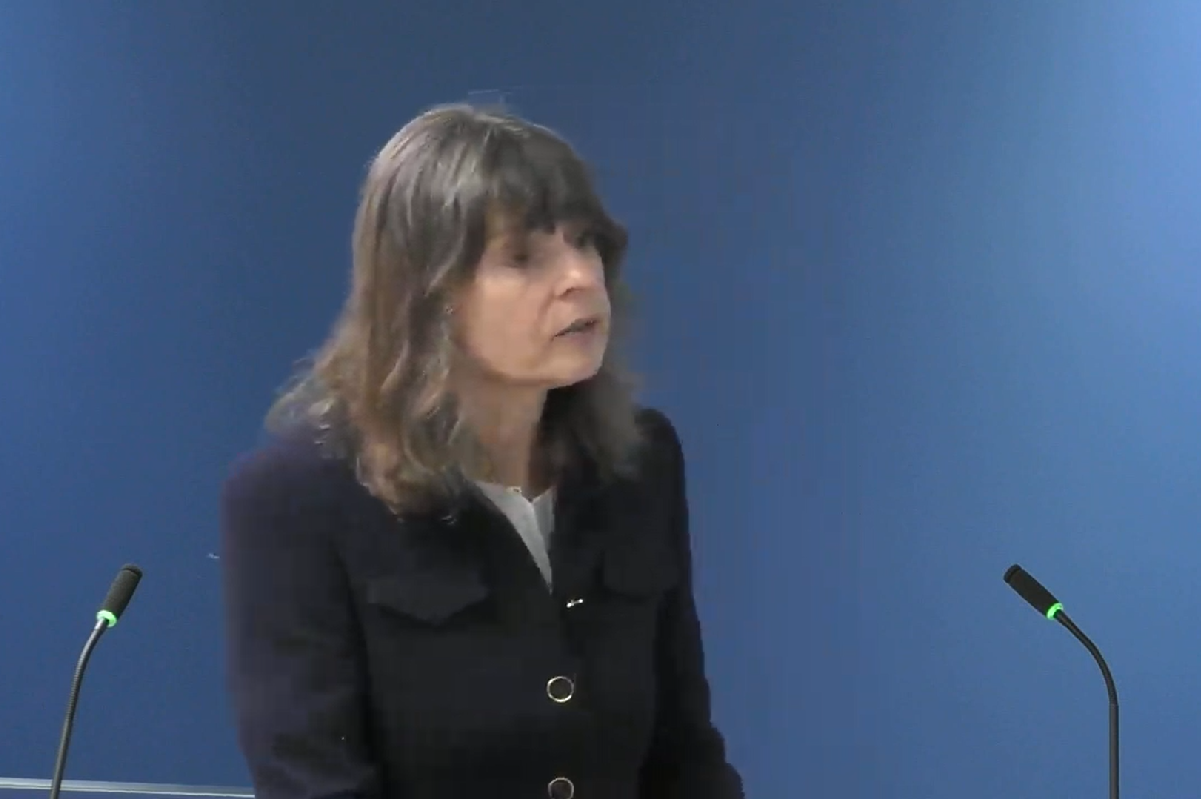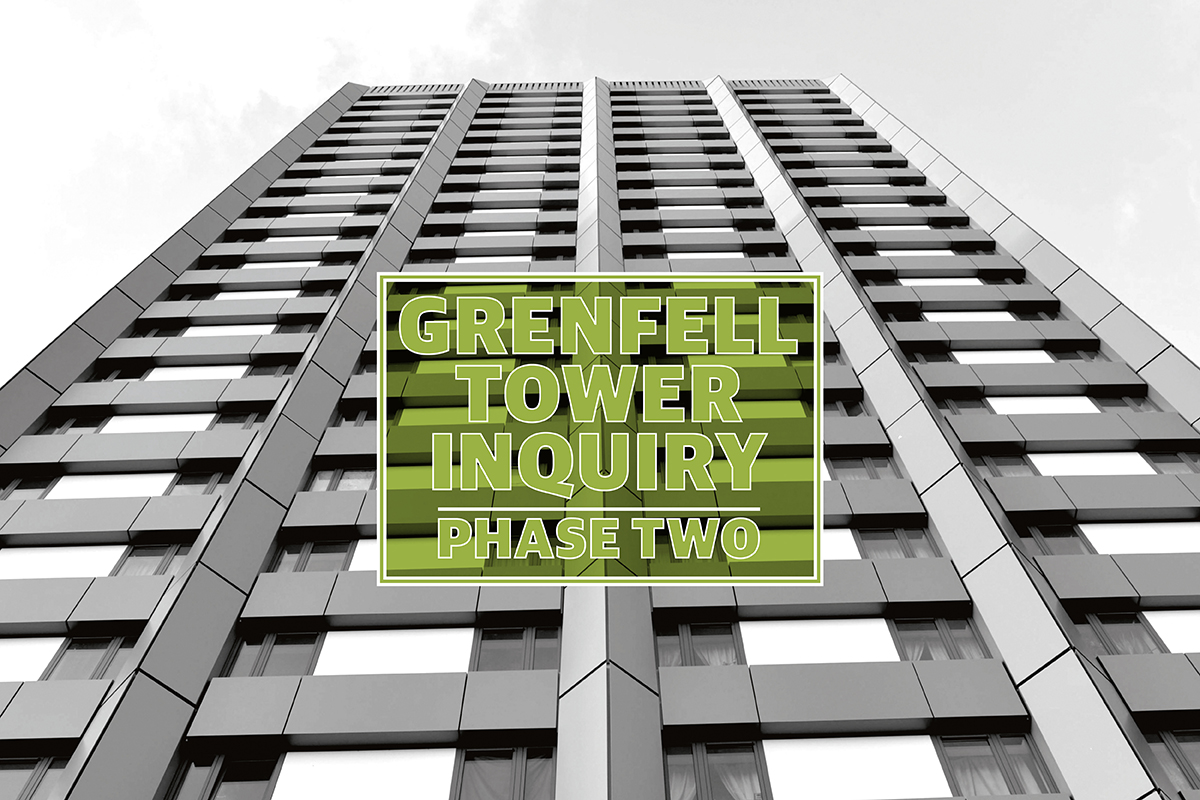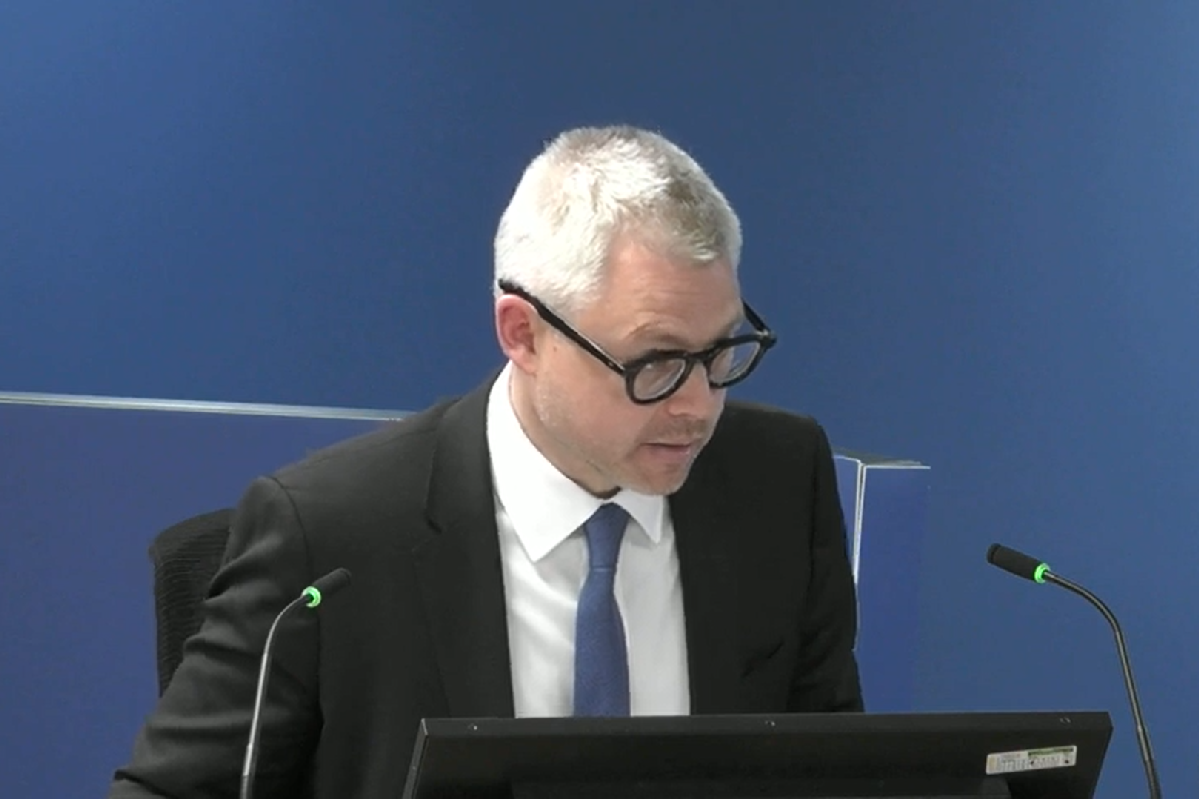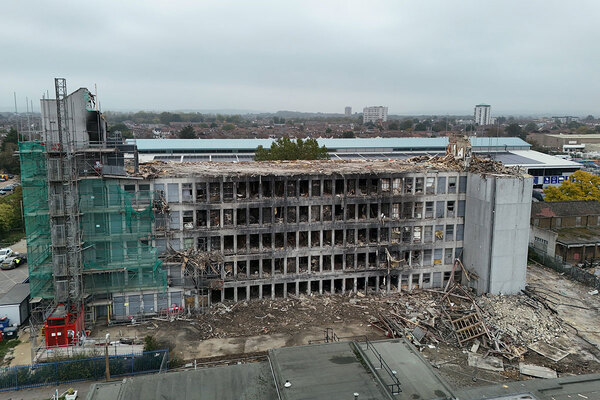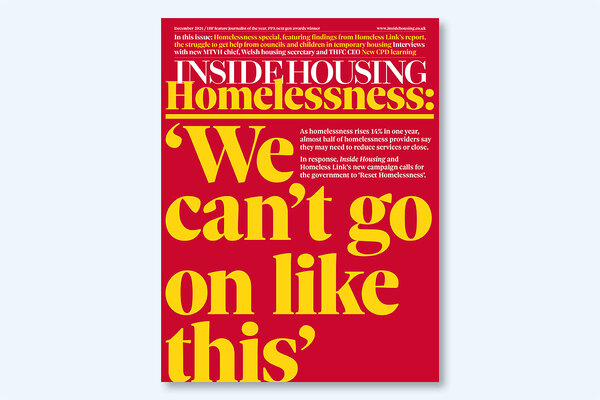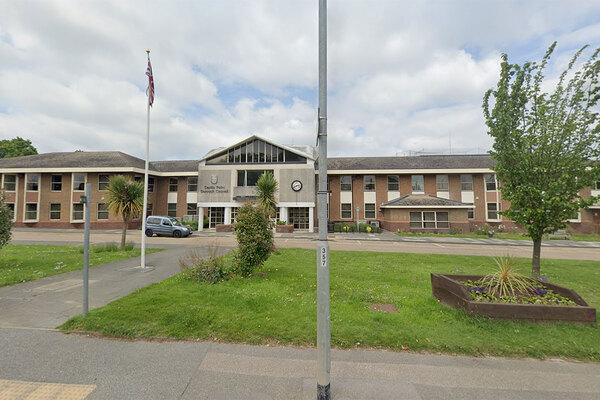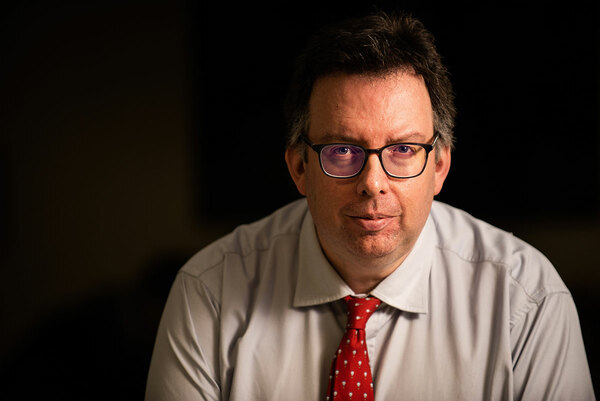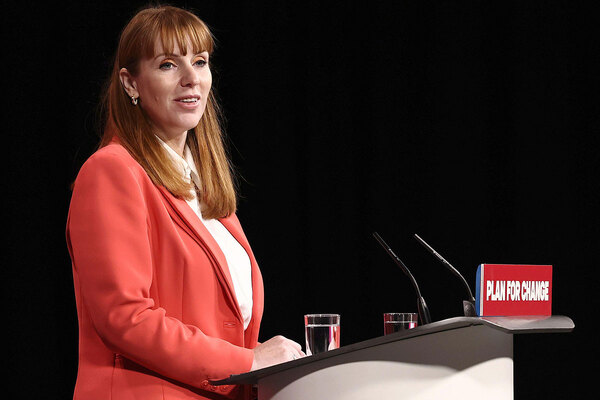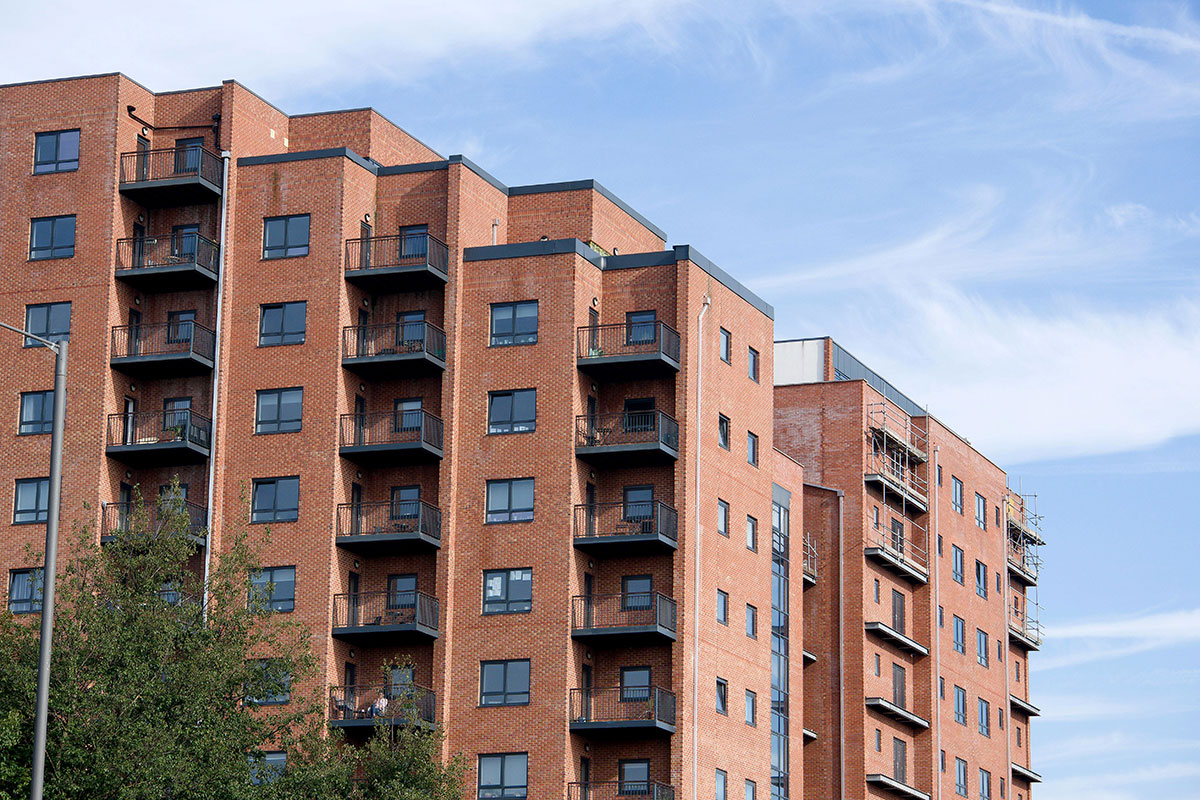Government admits failing to provide oversight of an ‘inadequate’ and ‘poorly operated’ regulatory system pre-Grenfell
The government has admitted that it failed to put in place or provide sufficient oversight of a regulatory system that could have prevented the Grenfell Tower fire.
Jason Beer QC, acting on behalf of the Department for Levelling Up, Housing and Communities (DLUHC), made the admission during his closing submission to module six of the inquiry earlier today.
Mr Beer outlined four reasons the government missed opportunities to look into whether the regulatory system was operating effectively: a lack of formal oversight, a reliance on industry, departmental financial constraints, and the government’s deregulatory policy.
He said: “The department would suggest that these elements combined led to a situation where officials felt unable to escalate concerns when they arose, [and] that it is appreciated that financial constraints are accepted to have had an impact on the department’s operations.”
Mr Beer said it was also accepted that deregulation played a part in underpinning a culture in which officials felt unable to properly to escalate warnings when they were raised, or to progress work in response to recommendations, and in particular those made by the coroner following the Lakanal House fire in 2009.
He said that the government maintains that the Grenfell Tower fire could have been avoided had those professionals engaged in its refurbishment actually stopped and properly considered the use of aluminium composite material (ACM) panels and combustible insulation.
The comments follow lawyers for bereaved and survivors accusing the government’s limited admission of responsibility as “fundamentally misleading” on Monday.
Stephanie Barwise QC, representing one group, said: “It is therefore fundamentally misleading to characterise the parlous state of the building regulations and associated guidance as an unfortunate by-product of a prolonged lapse in concentration by the department’s officials, tinged with some unspecified ministerial responsibility and a degree of austerity.
“It is more than that. The evidence points to wilful blindness and complacency towards safety, which was subjugated to the more pressing and politically appealing housing and deregulatory agendas.”
Earlier in the session, the inquiry heard from six other organisations whose actions have been under scrutiny by the inquiry.
First up was Stephen Hockman QC, acting on behalf of AAP SAS, the French arm of American multinational company Arconic, which sold the cladding panels used on Grenfell Tower.
He told the inquiry during an hour-long submission via video link that the evidence of a number of witnesses, who did not believe the use of combustible material was in conformity with the regulatory regime at the time, “lacks plausibility”.
Mr Hockman said it was easy to see why, following the Grenfell fire, witnesses should wish to distance themselves from that regime.
He added: “It seems from a strategic view of the evidence that the Grenfell Tower fire was not the only reason why witnesses were incentivised to close their eyes to what was in front of them.
“The true reason is because as awareness of the situation developed, even before the Grenfell fire, no one was willing to face up to the legacy issue, namely the problem that all parties were faced with a legacy of buildings with combustible materials.
“If and when it should be decided that was no longer a safe method of construction to employ.”
Mr Hockman said there were many other causes at least equal to the ACM panels used in the cladding system on Grenfell, including the failure to introduce suitable non-combustible barriers around the windows, which he said at the very least could have delayed the spread of the fire.
He added: “What happened at Grenfell was truly a storm in which the ACM panels were but one component of the maelstrom.”
Tim Green QC, acting on behalf of insulation manufacturer Kingspan, praised the expert testimony of Professor José Torero and Professor Luke Bisby.
Professor Torero had pointed out how the guidance for interpreting cladding fire tests had been “full of mistakes from beginning to end”, and Professor Bisby said that the regulatory framework “encouraged” builders to “exploit guidance in pursuit of profit”.
Tests carried out by Professor Bisby indicated that the insulation was responsible for only 2% to 10% of the fire spread, and the fact that it was combustible rather than non-combustible had even less of an impact.
Mr Green said of their evidence that “it is now clear beyond any doubt that the nature and speed of the spread of the Grenfell Tower fire was caused by the presence of Arconic’s ACM cladding”.
He also took aim at the government’s handling of fire safety issues and the regulatory regime that contributed to the fire.
He said: “Part of the reason for this failure is that no emphasis was placed by the regulatory regime or by the relevant government department on the need for test data to be collated and shared transparently.”
Part of the reason for this failure, he continued, may have been an over-reliance on individual product testing, rather than how they work together in a much larger system like the one that was installed on Grenfell.
Mr Green described routes to testing and compliance that “remain flawed today” and did “not expressly require any consideration given as to how products will perform when used together in a system”.
He said the government’s decision to ban the use of combustible products following the Grenfell Tower fire was taken without the benefit of the expert evidence obtained in this inquiry, and without a full understanding of the unintended consequences.
Sam Leek QC, acting on behalf of the Building Research Establishment (BRE), began by attempting to clear up the status of the BRE and its relationship to the government, saying there had been a “misguided” portrayal of its role.
Ms Leek said: “The BRE does not have any other status to oversee what is placed into the built environment. The BRE does not draft building regulations, nor approved documents. Some core participants still appear to misunderstand the BRE’s role.”
To that extent she said that some witnesses had “laboured under the same misapprehensions” that the BRE was a government appointed regulator or had a role in the regulatory system.
She said the BRE had “no authority, remit or funding to investigate matters outside of how it was contracted”.
She added: “It is wholly unrealistic to suggest that BRE ought to have predicted industry, from architects to manufacturers and industry bodies to building control, would adopt an interpretation of Approved Document B that failed to meet functional requirements.”
Dominic Adamson QC, acting on behalf of the Local Authority Building Control (LABC), rejected the suggestion that the organisation had acted in any way that could be considered corrupt or dishonest.
He said that the confusion around the meaning of Class 0 and the concept of limited combustibility had nothing to do with LABC.
“The confusion was manipulated by unscrupulous players within the construction industry, such as Kingspan, and the evidence in module six has conclusively demonstrated that successive governments implemented and thereafter maintained a competitive building control regime within a non-prescriptive framework of legislation without sufficient control, oversight,” he said.
“This led to what many refer to as a race to the bottom.”
Mr Adamson admitted that LABC had issued “deficient certificates” to certain products, such as Kingspan’s K15, its flagship insulation product used on Grenfell Tower.
However, he said: “LABC realises that it was manipulated by manufacturers who preyed on industry-wide confusion to obtain LABC certification. It naively believed that applicants acted in good faith.”
He refuted any suggestion that LABC was financially dependent on Kingspan or anyone else.
He said that “flippant emails and jokes relating to bonuses and saving fake companies between colleagues have been treated as if they were fact but LABC was not beholden to the cladding industry generally or any particular manufacturer or supplier”.
Mr Adamson added: “It is regrettable that some core participants have sought to use LABC as a shield to justify, defend or mitigate their own failings.”
Matthew Butt QC, acting on behalf of the National House Building Control (NHBC), said the organisation refutes any suggestion that it took a lax approach to fire safety.
He described allegations that NHBC’s attempts to address the use of K15 were driven by a desire to hide past errors or were commercially motivated as “an ex post facto rationalisation given to the inquiry”.
Mr Butt said: “The evidence is that between 2013 and 2014 it was primarily NHBC staff challenging Kingspan, requesting test evidence and ultimately driving the industry away from reliance upon certificates, which is now known as an error and based upon deception by manufacturers.”
Later, he added: “We wish to reiterate that at all times, NHBC acted with its core purpose to improve standards and health or industry bodies, and that this came before any commercial considerations.”
Sign up for our weekly Grenfell Inquiry newsletter
Each week we send out a newsletter rounding up the key news from the Grenfell Inquiry, along with the headlines from the week
Already have an account? Click here to manage your newsletters
